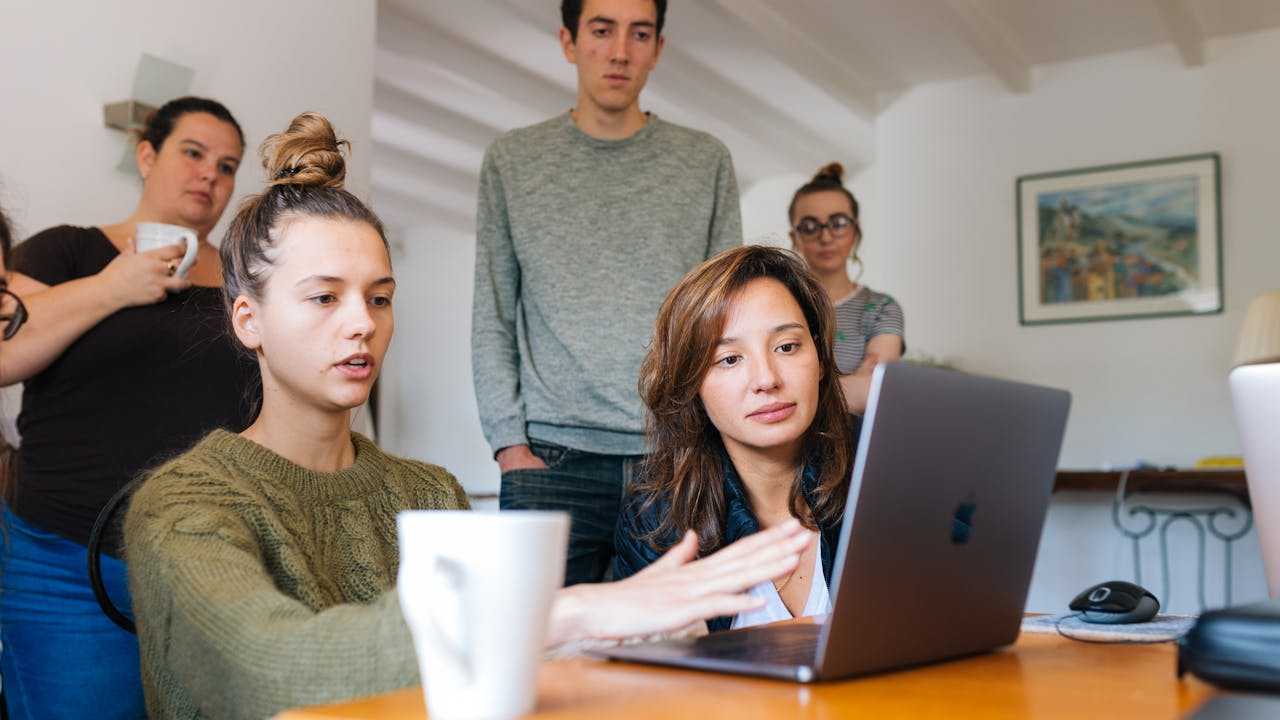Science
China Conquers Space: First an Asteroid, Then a Distant Comet
15 July 2025

Humans are inherently social beings, so it is no wonder they behave differently among other people than in solitude. Being part of the group can motivate us to fight and support the effort. A perfect example is team sports, where participants encourage and uplift each other. But on the other hand, being in a group sometimes can drag us down and have a negative impact. How do these contrasting effects of group dynamics operate?
Let’s start with what the group bothers us with. First, when other people surround us, we become more stimulated. Why does this happen? Robert Zajonc, an American psychologist of Polish origin, explained that our alertness and readiness to react increases in such conditions. Even if we are directly not competing with anyone, it often leads to the social inhibition effect, i.e. a situation in which we deal worse with a task when someone is around. It is interesting to see the short videos from the internet that show the perspective of “Me taking out the garbage when someone is looking vs. when I do it myself.” Usually, the former scenario ends in a spectacular failure.
Is this an exaggerated reality? Of course, it is, and it is confirmed even by psychological research. Robert Zajonc noted that worse task performance occurs only when the subjects face something difficult they have not done before (for example, solving puzzles). Routine activities like taking out the garbage is different from tasks of this kind. This is a repetitive and simple activity, and these are often performed more efficiently when done in the presence of others.

Does the willingness to complete a task decrease when more people are involved? Yes, it does, and this effect was already observed over a century ago. A French engineer named Ringelmann asked the workers to pull the rope as hard as possible. It turned out that their effort fell from 100% to 85% in groups of three, and in groups of eight, it fell to 49%.
This phenomenon, known as social loafing, is also observed in other tasks, for example, during brainstorming. Where does it come from? There are three reasons:
We recommend: Pop Psychology: We Start Spouting Nonsense and Demand Respect for this Nonsense
The group makes it easier to avoid taking responsibility. This is especially evident in situations where someone needs help. In 1968, two American social psychologists, John Darley and Bibb Latané, conducted an experiment in which they simulated an epileptic attack. Even though the victim asked for help, only 31% of the subjects responded when they thought there were four other people nearby. Those who believed they were the only witnesses intervened in 85% of the cases.
Thus, the presence of other people caused the diffusion of responsibility, the phenomenon also called the bystander effect. The increase in the number of witnesses reinforces this dependence. So when we ask someone for help, let’s turn directly to a specific person. This increases the likelihood that this person will take on responsibility, and it is already half the battle.
In 1951, Solomon Asch conducted a famous experiment in which he presented the subjects with two boards. There was a line called X on the first and three lines (A, B and C) of different lengths on the other. The line B was the same length as X, while the others were longer or shorter. The task was to match which line has the same length as X.
When the participants made this decision alone, they performed accurately. However, the situation changed when several people who deliberately said that line A was the most similar to X, joined the group. Their incorrect answers led to confusion and eventually made others change their decision to the one indicated by the majority. This happened in 32% of cases.
What does the experiment teach us about how group dynamics works? Our decisions are not only influenced by our senses, which see clearly that the two lines are different. The fact that we want to be accepted and liked, not excluded, also plays a huge role. Therefore, sometimes we agree with the majority even if it is wrong.
We recommend: Where There’s a Will, There’s a Way? The Key to Success in Life
Don’t let the issues mentioned above overshadow the advantages of being in a group. It is primarily the fact that people imitate each other’s behavior, which makes one person able to encourage several individuals to make an effort. A good leader, in particular, can play a crucial role in this process.
Besides, there is a mathematical principle at play – the more people, the greater the chance there will be someone with the skills we need. And then the task goes much more smoothly. The group also benefits from and transfer of knowledge – experts share their experience with newcomers, leading to a collective benefit of skills and understanding.
More capable people can also catch up on the results obtained by others, and the situation may reverse with another task. The skills can complement each other.
What does the research say about it? In 2006, researchers led by Patrick R. Laughlin conducted an experiment involving deciphering a code from letters. For example: “A+B=5, A-B=1, so A=?” It turned out that groups of several people performed the task better than people who solved it individually (in terms of the number of attempts). The optimal number of members in the group was three. More participants did not improve the quality of task performance.
In a 2007 meta-analysis, two psychologists, Bernhard Weber and Guido Hertel, focused on how the motivation of members whose skills are inferior to those of the rest of the group works. After analyzing 17 studies, they found that less capable people can force themselves to make more effort when working with others.
Two factors are likely to have an impact on this:
Group task-solving should be treated as an exception rather than a rule. However, before implementing this idea, everyone should be aware of the dangers of groupthink. Understanding these risks is one of the most effective ways to avoid them.
Each participant should also reflect on the questions related to social loafing. That is: “Will my effort improve the group’s result?”, “Will better group results bring more benefit to all of us?”, “Will the group’s profit translate into my profit as well?” After considering these questions, it will be much easier to engage effectively in group tasks.
Translation: Marcin Brański
Polish version: Większa motywacja czy pokusa lenistwa? Cienie i blaski współpracy w grupie


Science
13 July 2025

Zmień tryb na ciemny